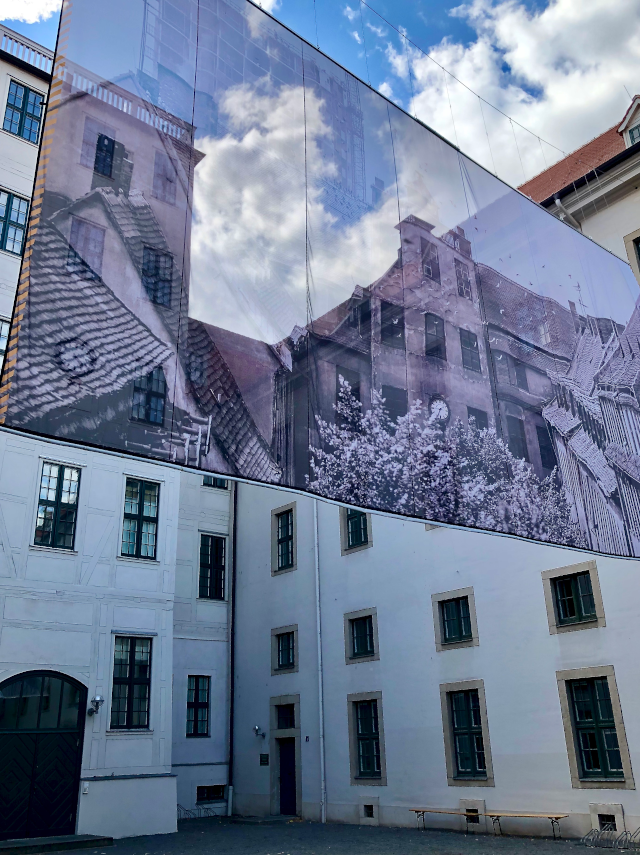Research
Research Prof Dr Jörg Dinkelaker
Titel: Promotionskolleg "Vermittlung und Übersetzung im Wandel - Relationale Praktiken der Differenzbearbeitung angesichts neuer Grenzen der Teilhabe an Wissen und Arbeit" an der Martin-Luther-Universität Halle-Wittenberg (Laufzeit: 01.10.2019 bis 31.10.2022)
Gegenstand des Promotionskollegs sind veränderte Konstellationen und Praktiken der Vermittlung und Übersetzung angesichts der fortschreitenden Digitalisierung, Automatisierung und Globalisierung von Arbeitszusammenhängen. Vermittlung und Übersetzung werden dabei als zwei Modi des Umgangs mit Grenzen der Teilhabe in den Blick genommen und in transdisziplinärer Ausrichtung (Erziehungswissenschaft, Betriebswirtschaftslehre, Linguistik und Soziologie) im Kontext gesellschaftlichen Wandels empirisch untersucht. Im Horizont relationaler Vermittlungs- und Übersetzungsbegriffe wird nach Herausforderungen, Gelingensbedingungen und Grenzen der Ermöglichung von Teilhabe gefragt.
Weitere Informationen
- Homepage des Promotioskolleg "Vermittlung und Übersetzung im Wandel"
- Email: pk-vermittlung-uebersetzung@zsb.uni-halle.de
- Pressemitteilung
Doing Life course in Educational Practices: Variations of referencing to life courses in adult education events (Duration: 01.01.2017 to 30.09.2018)
In this project we scrutinise the situated, collaborative generation of life course narratives in the context of adult education classes. By means of this empirical analysis we aim to develop a multi-level theoretical model of the social organisation of educational events. Our particular interest resides in identifying the ways in which adult education emerges via the entanglement of changing societal regimes as they determine and prescribe the life course and the specific, individual lives of the participants as they are narrated.
Publications
- Dinkelaker, J./Wyßuwa, F. (2018): Lebenslauf und Bildungspraxis. Verschränkte Fluchtpunkte erziehungswissenschaftlicher Interaktions- und Biographieforschung. In: Kreitz, R. u.a. (Hrsg.): Das Erziehungswissenschaftliche Das Erziehungswissenschaftliche qualitativer Forschung. Opladen: Barbara Budrich.
- Dinkelaker, J. (2017). Operationen am offenen Lebenslauf. - Varianten der Kommunikation lebensgeschichtlicher Selbstverhältnisse in Veranstaltungen der Erwachsenenbildung/Weiterbildung Biografie - Lebenslauf - Generation: Perspektiven der Erwachsenenbildung - Leverkusen-Opladen: Budrich, Barbara, S. 201-214.
- Dinkelaker, J. (2017). Tanzen Lernen - ein abseitiger Blick auf Vermittlung und Aneignung in der Erwachsenenbildung Hessische Blätter für Volksbildung: Zeitschrift für Erwachsenenbildung in Deutschland - Bielefeld: WBV Bertelsmann, Bd. 67.2017, 2, S. 30-43.
The history of adult education as reflected in the empirical analysis of prospectuses (Duration: since 01.10.2017)
In this project we trace the development of adult education in the former East German states of Thuringia, Saxony and Saxony-Anhalt before and after the caesura of 1989 by means of an analysis of prospectuses (“Programme” and “Arbeitspläne”) issued by adult education centres (Volkshochschulen). Our chief source for the analysis of transformations from 1947 onwards is the online archive of the German Institute for Adult Education (DIE). We use prospectuses held by local archives in the region to trace the dynamics of institutionalisation in the period between 1919 and 1933.
Publications
- Ebner von Eschenbach, M./Dinkelaker, J. (2020): Der Wandel im Anbieter-Adressat_innen-verhältnis an der Volkshochschule Halle im Jahr 1921 analysiert anhand der Umschlagseiten ihrer Arbeitspläne. In: Dörner, O./Dinkelaker, J./Grotlüschen, A./Käpplinger, B./Molzberger, G. (2020): Vergangene Zukünfte – Neue Vergangenheiten. Geschichte und Geschichtlichkeit der Erwachsenenbildung. Dokumentation der Jahrestagung der Sektion Erwachsenenbildung der DGfE 2019. Opladen: Barbara Budrich.
- Ebner von Eschenbach, M. & Dinkelaker, J. (2019). Arbeitspläne als Quellen zur Geschichte der Volkshochschulen in der Weimarer Republik. SPURENSUCHE. Zeitschrift für Geschichte der Erwachsenenbildung und Wissenschaftspopularisierung 28, 77-89.
Participating in adult education: Processing relations between biography and culture in adult education events (Duration: 01.01.2010 to 15.06.2016)
This video-based study is centred on the comparative analysis of trajectories of participation in selected adult education classes and courses. The careful reconstruction of different ways of becoming, being and remaining involved in educational interaction leads to a theoretical reconsideration of how we might understand “participating” in educational settings. The research shows that participation is a form of social doing accomplished in interactive sequences of collaborative coordination and cannot be adequately conceived of as a merely individual phenomenon.
Publications
- Dinkelaker, J. (2017): Reversible Selektivität. Zur videobasierten Rekonstruktion pädagogischer Interaktionen. In: Heinrich, M./Wernet, A. (Hrsg.): Rekonstruktive Bildungsforschung – Zugänge und Methoden. Wiesbaden: Springer VS, S. 141-158.
- Dinkelaker, J. (2017). Aufmerksamkeit in pädagogischen Situationen Handbuch Schweigendes Wissen: Erziehung, Bildung, Sozialisation und Lernen - Weinheim: Beltz Juventa, S. 380-391.
- Dinkelaker, J. (2016): Aufmerksamkeit als Kategorie einer Empirie pädagogischer Situationen. In: Meseth, W./Dinkelaker, J./Dörner, O./Kunze, K./Neumann, S./Rabenstein, K. (Hrsg.): Empirie des Pädagogischen und Empirie der Erziehungswissenschaft. Beobachtungen erziehungswissenschaftlicher Forschung. Bad Heilbrunn: Klinkhardt, S. 110-124.





